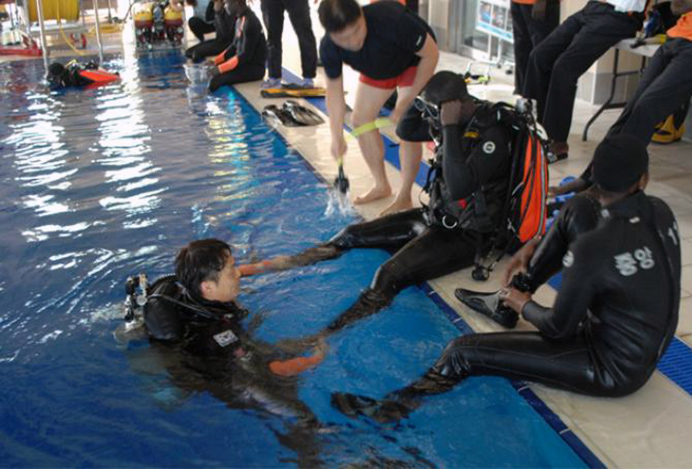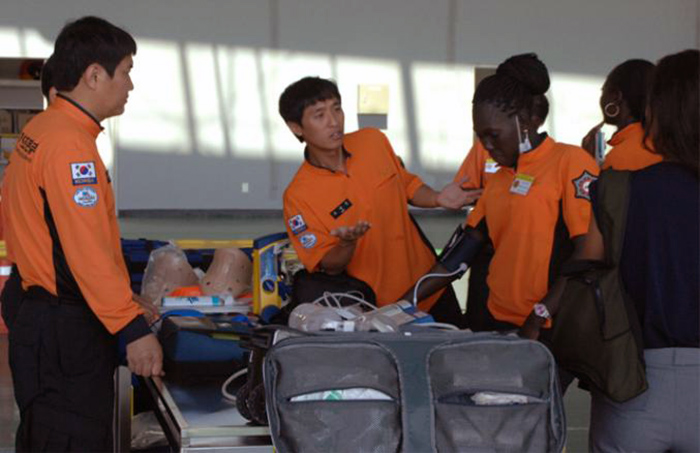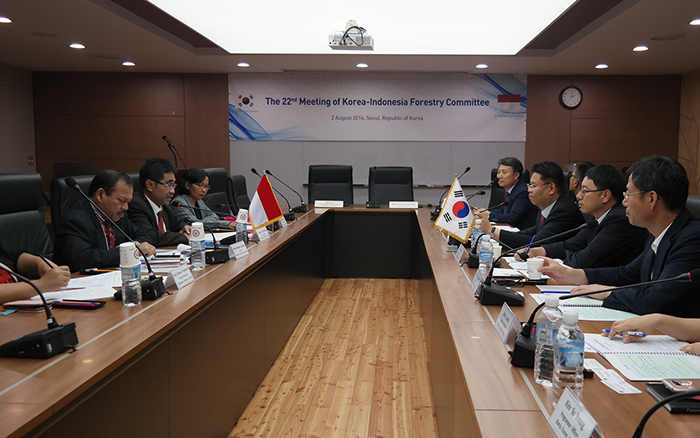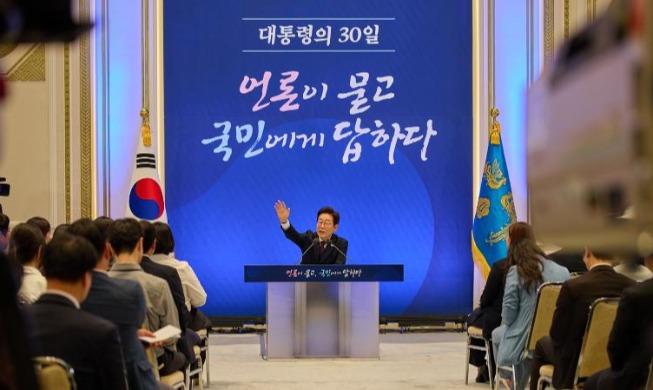Korea and Senegal have begun sharing their experiences and know-how on training for disaster response and relief.
The International Urban Search & Rescue Course was held from Aug. 1 to 12 for public officials from Senegal in the sector of disaster control and management. This training program is hosted by the National 119 Rescue Services, part of the Ministry of Public Safety and Security.
The 15-strong team of participants in the program have been practicing search and rescue skills in urban as well as mountainous areas, which they can apply to actual disaster scenarios. They have also been learning about South Korea’s disaster control management systems, international disaster response systems and rescue-related best practices.


Commissioned by the Korea International Cooperation Agency (KOICA), the National 119 Rescue Services have been operating such emergency rescue training programs since 2008 as part of Korea’s overseas development assistance (ODA) projects. Since then, such training sessions have been held 16 times, offering training and education about South Korea’s disaster management system and rescue skills, for rescue workers from countries from around the globe.

Earlier this month, Korea and Indonesia discussed cooperation measures on the forestry sector. The two governments agreed to bolster cooperation on the forestry industry by creating forests for wood biomass and to carry out a forest recreation test project.
The Korea Forest Service and the Indonesian Ministry of Environment and Forestry held the 22nd meeting of the Korea-Indonesia Forestry Committee at the Forest Vision Center in Seoul on Aug. 2.
The two countries discussed ways to plant a forest that would create wood biomass near Semarang, Indonesia, and to carry out forest recreation and ecotourism test projects. The two sides also exchanged opinions on the introduction of a certificate system for the legality of harvested wood, which would ban the illegal use of wood, and on increasing person-to-person exchanges between vocational schools in the forestry industry in the two countries.
Both Korea and Indonesia agreed to develop biomass as a model project for the two countries, due to the excellent suitability and economic feasibility of biomass fuels.
So far, a 1,000-hectare area of woodlands has been created thanks to the ongoing forestation project near Semarang. The project will involve the reforestation of a 200-hectare area by the end of the year.
By Yoon Sojung
Korea.net Staff Writer
Photos: National 119 Rescue Services, Korea Forest Service
arete@korea.kr
The International Urban Search & Rescue Course was held from Aug. 1 to 12 for public officials from Senegal in the sector of disaster control and management. This training program is hosted by the National 119 Rescue Services, part of the Ministry of Public Safety and Security.
The 15-strong team of participants in the program have been practicing search and rescue skills in urban as well as mountainous areas, which they can apply to actual disaster scenarios. They have also been learning about South Korea’s disaster control management systems, international disaster response systems and rescue-related best practices.


Public officers from Senegal practice how to conduct rescues at sea and how to deliver patients to hospitals using aircraft, during an education program offered by the National 119 Rescue Services.
Commissioned by the Korea International Cooperation Agency (KOICA), the National 119 Rescue Services have been operating such emergency rescue training programs since 2008 as part of Korea’s overseas development assistance (ODA) projects. Since then, such training sessions have been held 16 times, offering training and education about South Korea’s disaster management system and rescue skills, for rescue workers from countries from around the globe.

The Korea Forest Service and the Indonesian Ministry of Environment and Forestry hold the 22nd meeting of the Korea-Indonesia Forestry Committee in Seoul on Aug. 2.
Earlier this month, Korea and Indonesia discussed cooperation measures on the forestry sector. The two governments agreed to bolster cooperation on the forestry industry by creating forests for wood biomass and to carry out a forest recreation test project.
The Korea Forest Service and the Indonesian Ministry of Environment and Forestry held the 22nd meeting of the Korea-Indonesia Forestry Committee at the Forest Vision Center in Seoul on Aug. 2.
The two countries discussed ways to plant a forest that would create wood biomass near Semarang, Indonesia, and to carry out forest recreation and ecotourism test projects. The two sides also exchanged opinions on the introduction of a certificate system for the legality of harvested wood, which would ban the illegal use of wood, and on increasing person-to-person exchanges between vocational schools in the forestry industry in the two countries.
Both Korea and Indonesia agreed to develop biomass as a model project for the two countries, due to the excellent suitability and economic feasibility of biomass fuels.
So far, a 1,000-hectare area of woodlands has been created thanks to the ongoing forestation project near Semarang. The project will involve the reforestation of a 200-hectare area by the end of the year.
By Yoon Sojung
Korea.net Staff Writer
Photos: National 119 Rescue Services, Korea Forest Service
arete@korea.kr
Most popular
- Grammy-winning producer calls Suga of BTS 'amazing artist'
- Animated 'KPop Demon Hunters' tops Netflix charts in 41 markets
- 'Squid Game' events to pump up K-Content Seoul Travel Week
- Reunited BLACKPINK releases video preview of world tour
- 'Universal love, family' themes fuel success of 'King of Kings': director
